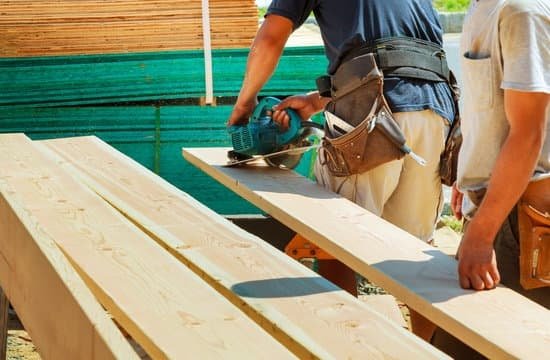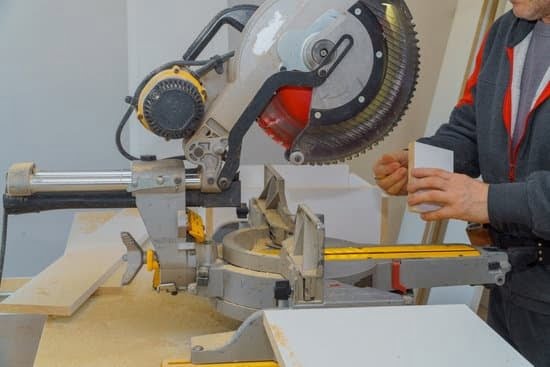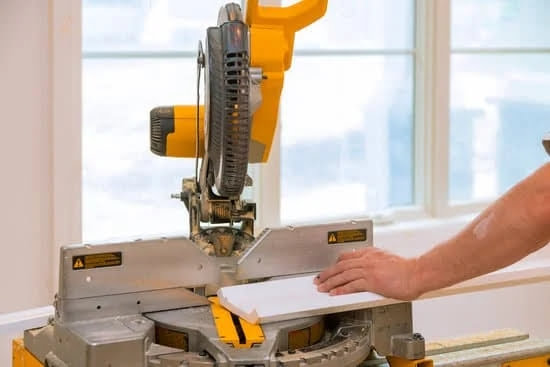Woodworking is a craft that requires precision, skill, and of course, the right tools. Without the proper tools, even the most talented woodworker will struggle to create quality pieces. Whether you are a beginner looking to start your woodworking journey or a seasoned craftsman looking to upgrade your shop, having the must-have woodworking shop tools is essential.
In this article, we will delve into the world of woodworking tools and discuss everything from power tools to hand tools, workshop machines to specialty tools. We will explore how each tool contributes to the woodworking process and why they are considered indispensable in any woodworking shop.
Having the right tools not only ensures that you can complete your projects efficiently but also helps improve the overall quality of your craftsmanship. A well-equipped woodworking shop enables you to take on more complex projects, experiment with different techniques, and push your skills to new heights.
So whether you are a hobbyist or a professional woodworker, join us as we explore the must-have woodworking shop tools that every enthusiast should have in their arsenal. From understanding the functions of power tools and hand tools to uncovering hidden gems of specialty equipment, this comprehensive guide will equip you with all the knowledge needed to build your dream workshop.
Essential Power Tools for Woodworking
Power tools are an essential part of any woodworking shop. They not only increase efficiency and accuracy but also provide woodworkers with the ability to tackle a wide range of projects. In this section, we will explore some of the must-have power tools for woodworking enthusiasts.
One of the most versatile and indispensable power tools for any woodworker is the table saw. With its ability to make straight, smooth cuts through various types of wood, it is often considered the backbone of a woodworking shop. Additionally, a miter saw is another crucial tool that enables precise angled cuts, making it ideal for framing or creating joints.
A power drill is another essential tool that no woodworking shop should be without. It can be used for drilling holes, driving screws, and even sanding surfaces with the appropriate attachments. For more intricate tasks such as shaping and smoothing wood, a router is an invaluable tool. Its versatility allows for decorative finishes and precise edge profiling.
To ensure accuracy in measurements and cuts, a good quality combination square should be part of every woodworker’s toolkit. It serves as a reliable reference point for marking lines or checking angles. A random orbital sander is also worth investing in, as it provides efficient sanding while minimizing swirl marks on finished surfaces.
| Power Tool | Function |
|---|---|
| Table Saw | Making straight cuts through various types of wood |
| Miter Saw | Precision angled cuts for framing or joint creation |
| Power Drill | Drilling holes, driving screws, and sanding surfaces |
| Router | Shaping, smoothing, and decorative finishes |
| Combination Square | Reference point for marking lines and checking angles |
| Random Orbital Sander | Efficient sanding with minimal swirl marks on finished surfaces |
Having these essential power tools in your woodworking shop will ensure that you have the right equipment to tackle various projects with precision and efficiency. However, it is important to remember that proper technique, safety precautions, and regular maintenance are equally important in achieving successful woodworking outcomes.
Must-Have Hand Tools for Every Woodworking Enthusiast
When it comes to woodworking, having the right tools can make all the difference in the quality of your work. While power tools are often considered essential for woodworking, hand tools play an equally important role in any woodworker’s arsenal. Hand tools allow for precision and control, allowing you to achieve intricate details and fine craftsmanship that may be difficult to accomplish with power tools alone.
Here is a comprehensive list of must-have hand tools for every woodworking enthusiast:
- Hand planes: These versatile tools are used for shaping, smoothing, and flattening wood surfaces. They come in various sizes and types such as block planes, bench planes, and specialty planes like shoulder planes and router planes.
- Chisels: Chisels are essential for precise carving, cutting mortises, and cleaning up joints. Look for a set of high-quality chisels with different widths to ensure versatility.
- Backsaw: A backsaw is a fine-toothed saw with a rigid back that allows for accurate cuts in tight spaces or along edges. It is commonly used for making joinery cuts such as dovetails and tenons.
- Mallet: A wooden or rubber mallet is used to strike chisels or drive joints together without damaging the wood. Choose a mallet that feels comfortable in your hand and has enough weight to provide sufficient force.
- Marking and measuring tools: Essential marking and measuring tools include a combination square, marking gauge, bevel gauge, tape measure, and sliding bevel. These tools help ensure accuracy when laying out cuts and dimensions on your woodwork.
- Carving knives: For those interested in woodcarving or intricate detailing work, a set of carving knives is indispensable. These knives come in various shapes and sizes to accommodate different carving techniques.
- Sharpening equipment: Keeping your hand tools sharp is crucial for achieving clean cuts and reducing effort while working. Invest in a quality sharpening stone or system to maintain the sharpness of your tools.
Having these essential hand tools will allow you to tackle a wide range of woodworking projects with accuracy and precision. Remember, when choosing hand tools, prioritize quality over quantity, as investing in durable and well-made tools will ultimately save you time and money in the long run.
The Indispensable Workshop Machines for a Woodworking Shop
In addition to essential hand tools and power tools, having the right machines in your woodworking shop can greatly enhance your ability to tackle more complex projects and increase your efficiency. While these machines can be a significant investment, they are integral to achieving professional-level results. Here are some of the indispensable workshop machines that every woodworking shop should have:
- Table Saw: Arguably the most important machine in a woodworking shop, a table saw is used for cutting large pieces of wood with precision and accuracy. It typically consists of a circular saw blade mounted on an arbor that is driven by an electric motor. The workpiece is guided along the table while the blade cuts through it, allowing for straight cuts, bevel cuts, and angled cuts.
- Jointer: A jointer is used to flatten the face and edge of rough lumber, making it straight and smooth. It consists of an infeed table and an outfeed table with rotating knives in between. As the rough lumber passes over the knives, they remove small amounts of material until the face or edge is flat.
- Planer: A planer is used to create smooth, consistent thickness throughout a piece of wood. It works by passing the wood through rotating blades that shave off thin layers until the desired thickness is achieved.
- Band Saw: A band saw uses a continuous band of metal with teeth along one edge to cut various materials, including wood. It is particularly useful for curved cuts or intricate shapes that would be difficult to achieve with other tools.
- Drill Press: A drill press allows for precise drilling at specific angles and depths. It consists of a motor-driven spindle with a chuck that holds different types of drill bits.
These workshop machines can significantly expand your capabilities as a woodworker and allow you to take on more challenging projects with ease. However, it’s important to remember that proper safety precautions should always be followed when operating these machines.
Safety First
Woodworking can be a fulfilling and rewarding hobby, but it is also important to prioritize safety in your woodworking shop. The right protective tools and equipment can help prevent accidents and injuries while you work with sharp tools and machinery. Here are some essential safety items that every woodworker should have in their workshop:
- Safety Glasses: Protecting your eyes is crucial when working with wood, as flying debris can cause severe eye injuries. Invest in a pair of safety glasses that fit securely and have impact-resistant lenses to shield your eyes from dust, wood chips, and other hazards.
- Dust Mask or Respirator: Woodworking generates a lot of dust, which can be harmful if inhaled regularly. A dust mask or respirator will filter out fine particles and protect your lungs from respiratory issues. Make sure to choose a mask that is designed for woodworking or has a high filtration rating.
- Ear Protection: Many woodworking tools produce loud noise levels that can damage your hearing over time. Wearing ear protection, such as earmuffs or earplugs, will help reduce the risk of long-term hearing damage. Look for products with a high noise reduction rating (NRR) for maximum protection.
- Safety Gloves: When handling sharp tools or rough materials, wearing safety gloves can prevent cuts, splinters, and abrasions on your hands. Opt for gloves made of durable materials like leather or Kevlar that provide both comfort and protection.
- Apron or Shop Coat: Protecting your body from stray wood chips, sawdust, or spills is important to maintain cleanliness in the workshop and prevent injury. Consider wearing an apron or shop coat made of sturdy material to protect your clothing and skin while working.
Remember, these are just some basic safety tools and equipment that every woodworker should have in their workshop. It’s important to always prioritize safety and invest in quality protective gear to minimize the risk of accidents and injuries. Additionally, make sure to follow proper safety procedures and read the user manuals for all tools and machinery before use.
Specialty Tools for Specific Woodworking Techniques and Projects
Specialty tools play a crucial role in woodworking by allowing craftsmen to tackle specific techniques and projects with precision and efficiency. These tools are designed to meet the unique needs of various woodworking tasks, enabling woodworkers to achieve desired results and expand their capabilities. Whether you are a beginner or a seasoned craftsman, having a collection of specialty tools can greatly enhance your woodworking experience.
One important category of specialty tools is carving tools. These tools are essential for creating intricate designs, decorative details, and sculptural elements in wood. Carving tools typically include chisels, gouges, and knives that come in various shapes and sizes. They allow woodworkers to remove material from the surface and shape it according to their artistic vision. From relief carving to chip carving and even woodturning, carving tools open up endless possibilities for creativity in woodworking.
Another vital set of specialty tools is the router and its accompanying bits. Routers are versatile power tools that allow woodworkers to shape, cut, groove, and join pieces of wood.
With different router bits such as edge-forming bits, joinery bits, flush trim bits, and chamfer bits among others, woodworkers can achieve precise and intricate details on the edges or surfaces of their workpieces. The router is a must-have tool for professionals who frequently work with cabinetry, furniture-making, and fine woodworking.
For those interested in making wooden joints like dovetails or mortise-and-tenon joints with precision and ease, specialized joinery tools should be part of their toolkit. Joinery tools such as dovetail saws or chisels specifically designed for making mortises make these complex woodworking tasks more manageable. By using these specialized joinery tools instead of general-purpose saws or chisels, woodworkers can ensure tight-fitting joints that add strength and aesthetic appeal to their projects.
Top 5 Must-Have Power Tools for Beginners in Woodworking
Woodworking can be a highly rewarding and fulfilling hobby, but it requires the right tools to get started. For beginners in woodworking, investing in the right power tools can make a significant difference in the quality of their projects. Here are the top five must-have power tools that every beginner should consider adding to their woodworking shop:
Circular Saw
A circular saw is an essential power tool for any beginner woodworker. It is versatile and can be used for a wide range of tasks such as cutting straight lines, crosscuts, and bevel cuts. With its adjustable cutting depth and easy maneuverability, a circular saw allows beginners to make accurate cuts and achieve professional-looking results.
Random Orbital Sander
Achieving a smooth finish on wooden surfaces is crucial in woodworking projects, and a random orbital sander is the perfect tool for the job. This power tool utilizes a round disc that moves in both circular and orbital motions simultaneously, resulting in a swirl-free finish on various materials. From leveling rough surfaces to removing old paint or stains, a random orbital sander is a must-have tool for every beginner.
Router
A router is a versatile power tool that can shape edges, create joinery, hollow out grooves, and even carve intricate designs onto wood surfaces. With different bits available, beginners can experiment with various techniques such as chamfering, rabbeting, or creating decorative profiles on their woodworking projects using this powerful tool.
Cordless Drill
No woodworking shop would be complete without a cordless drill. This handy tool not only helps beginners drive screws quickly but also enables them to effectively pre-drill holes for hardware installation or to prevent wood from splitting during assembly.
Jigsaw
For those looking to add curves and complex shapes to their woodworking projects, a jigsaw is an essential power tool. With its thin reciprocating blade, a jigsaw allows beginners to cut intricate patterns and irregular shapes in wood effortlessly. This tool is particularly useful for creating decorative designs, making it a must-have for any beginner woodworker.
Upgrading Your Woodworking Shop
As a seasoned craftsman, you already have a solid foundation of woodworking skills and basic tools. Now, it may be time to take your woodworking shop to the next level by investing in some advanced tools. These tools can enhance your capabilities, help you tackle more complex projects, and improve the overall efficiency of your work.
One essential tool that every seasoned craftsman should consider adding to their shop is a router table. A router table provides increased stability and control compared to using a handheld router alone. It allows for precision cuts, edge shaping, and decorative detailing with ease. With a router table, you can create intricate joinery and produce professional-quality results.
Another valuable addition to your woodworking shop is a jointer-planer combo machine. This versatile tool combines the functions of both a jointer and a planer into one compact unit.
A jointer-planer combo machine allows you to flatten and square rough lumber on one side with the jointer function, then flip it over and thickness plane the other side with the planer function. It saves space in your workshop while providing all the necessary capabilities for preparing wood for various projects.
A drum sander is another advanced tool that can greatly benefit seasoned craftsmen. While a planer can effectively remove stock from large surfaces, it may not provide the smooth finish desired for certain projects. A drum sander tackles this issue by sanding wood down to an ultra-smooth surface. It is particularly useful for sanding curved or irregular shapes that cannot be easily handled by other sanding methods.
Budget-Friendly Alternatives
Woodworking can be an expensive hobby, especially when it comes to purchasing tools and equipment. Luckily, there are budget-friendly alternatives available that can still provide quality results for DIYers. Here is a guide to some affordable woodworking tools that won’t break the bank.
Hand Tools
For DIYers on a budget, investing in a set of basic hand tools is a cost-effective way to get started with woodworking. A good set of chisels, a block plane, a coping saw, and a set of screwdrivers can go a long way in various woodworking projects. These hand tools are versatile and allow for precise and detailed work.
Portable Power Tools
Portable power tools are another great option for DIYers looking for more affordable alternatives. While they may not have the same power and capabilities as their larger counterparts, they can still get the job done effectively. Some essential portable power tools include a circular saw, jigsaw, orbital sander, and cordless drill. These tools are ideal for smaller projects or those with limited space.
Secondhand Tools
One budget-friendly option is to buy secondhand tools. Many woodworking enthusiasts love to upgrade their equipment regularly, which means there’s often lightly used tools available at lower prices. Check online marketplaces or local yard sales for secondhand tools that are still in good condition.
Tool Rental
If you only need certain tools for specific projects, renting them can be a cost-effective solution rather than purchasing them outright. Many hardware stores offer tool rental services where you can borrow high-quality equipment for a fraction of the purchase price.
DIY Tool Builds
For those who enjoy building things themselves, making your own woodworking tools can be an inexpensive alternative. There are numerous plans available online for homemade workbenches, toolboxes, and even specialized woodworking jigs. By building your own tools, you not only save money but also develop valuable skills in the process.
Remember, while budget-friendly alternatives can save you money, it’s crucial to prioritize quality and safety when selecting woodworking tools. Research different brands and read reviews to ensure that the tools you choose are durable and reliable. With a little bit of creativity and resourcefulness, DIYers can equip their woodworking shops with affordable tools that still deliver excellent results.
The Ultimate Woodworking Shop Tool Checklist
In conclusion, setting up your woodworking shop with the right tools is crucial for a successful and enjoyable woodworking experience. Whether you are a beginner or a seasoned craftsman, having the necessary tools can make all the difference in the quality of your work and the efficiency of your projects.
To start, it is important to invest in essential power tools such as a table saw, miter saw, and drill press. These tools will allow you to make accurate and precise cuts, holes, and joinery. Additionally, having a planer and jointer can help you achieve flat and smooth surfaces on your wood pieces.
Hand tools are also essential for any woodworking enthusiast. A set of high-quality chisels, hand planes, and coping saws will come in handy for intricate details and finishing touches. These tools not only provide better control but also allow you to work in areas where power tools may not be suitable.
Alongside power and hand tools, workshop machines play an indispensable role in any woodworking shop. Having a reliable bandsaw, lathe, and router table can greatly expand your capabilities as a woodworker. These machines enable you to create curved cuts, turn intricate designs, and add decorative edges to your projects.
Safety should always be prioritized in the woodworking shop. Therefore, investing in protective tools such as safety goggles, ear protection, dust masks, and a fire extinguisher is essential. Working with sharp objects and powerful machinery can pose risks if proper precautions are not taken.
Lastly, consider specialized tools that cater to specific woodworking techniques or projects that you may pursue. For instance, if you enjoy carving or sculpting wood pieces, investing in carving gouges or micro chisels would be wise. Similarly, if you frequently work on large-scale furniture projects with complex joinery systems, purchasing a mortiser or pocket hole jig might be beneficial.
Setting up your woodworking shop can be overwhelming due to the vast array of tools available. However, by following this ultimate woodworking shop tool checklist and investing in the essential tools mentioned throughout this article, you will be well-prepared to take on any woodworking project with confidence and precision.
Remember to prioritize safety, start with the basics, and gradually build your collection of tools as you progress in your woodworking journey. With the right tools at your disposal, your woodworking projects are sure to reach new levels of craftsmanship and satisfaction.

Hi everyone! I’m a woodworker and blogger, and this is my woodworking blog. In my blog, I share tips and tricks for woodworkers of all skill levels, as well as project ideas that you can try yourself.





